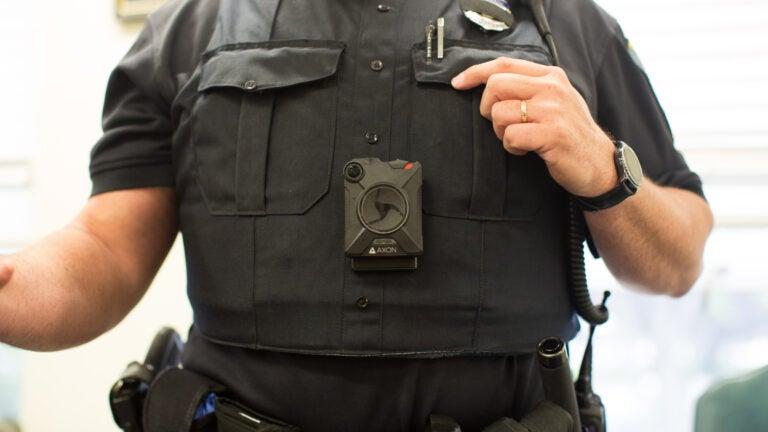Boston is taking meaningful steps to enhance transparency and accountability in law enforcement by advancing its police body camera policy and implementation.The city’s updated approach aims to expand the use of body-worn cameras among officers and refine guidelines governing their deployment, data storage, and public access. This move reflects Boston’s commitment to building trust between the police force and the community while addressing growing calls for reform in policing practices. The new measures are expected to improve oversight, protect civil rights, and provide clearer evidence in investigations, marking a pivotal moment in the city’s public safety strategy.
Table of Contents
- Boston Expands Body Camera Use to Enhance Transparency and Accountability
- Key Challenges in Implementing New Body Camera Protocols Addressed
- Community Engagement Shapes Policy Adjustments and Data Access Guidelines
- Recommendations for Strengthening Training and Ensuring Privacy Compliance
- to sum up
Boston Expands Body Camera Use to Enhance Transparency and Accountability
Boston is taking a significant step forward in its commitment to transparency and law enforcement accountability by broadening the deployment of body-worn cameras across its police force. This expansion aims to capture a wider range of interactions between officers and the public, ensuring an unbiased record of events while enhancing community trust. The updated policy not only mandates consistent use of body cameras during all public interactions but also introduces stricter protocols regarding data storage,access,and retention to safeguard privacy and integrity.
The initiative includes several key enhancements:
- Complete coverage: Body cameras will now be standard equipment for all frontline officers during patrol shifts.
- Improved data management: Implementation of encrypted storage solutions and transparent audit trails to control footage access.
- Community engagement: Regular reporting and public briefings on body camera usage and findings to promote accountability.
These measures reflect Boston’s proactive approach to modernizing police practices while balancing public safety with civil liberties.
Key Challenges in Implementing New Body Camera Protocols Addressed
The rollout of Boston’s updated police body camera protocols encountered several significant obstacles that city officials and law enforcement agencies have now addressed through strategic measures. Among the primary issues were concerns about data management and privacy, as well as ensuring consistent camera use during all relevant police interactions. To tackle these, Boston implemented an advanced digital infrastructure capable of securely storing vast amounts of footage, coupled with strict access controls to safeguard citizens’ privacy rights.
Another critical challenge centered on officer compliance and training. Officers initially expressed apprehension regarding the new operational requirements and the impact on their daily duties. The city responded by introducing comprehensive training programs emphasizing transparency, accountability, and technical proficiency. Additionally, Boston set up routine audits and feedback channels to ensure ongoing adherence to the policies while fostering trust within both the police force and the community.
- Enhanced data security protocols to protect recorded footage
- Robust officer training focused on protocol compliance
- Clear guidelines balancing transparency and privacy
- Continuous monitoring to reinforce accountability
Community Engagement Shapes Policy Adjustments and Data Access Guidelines
In shaping the latest adjustments to Boston’s police body camera policy,meaningful input from diverse community groups played a pivotal role. Public forums, town hall meetings, and dedicated advisory panels ensured that resident concerns were directly incorporated into the framework guiding body camera usage. This inclusive dialog emphasized transparency and accountability,fostering greater public trust. Key community-driven modifications include:
Data access guidelines have been restructured to reflect community priorities while respecting legal boundaries. Residents and advocacy groups called for stronger protections against misuse of recordings, leading to policies that limit third-party data sharing and reinforce strict oversight mechanisms. Importantly, Boston’s law enforcement agencies have committed to ongoing community engagement to periodically review the effectiveness and fairness of these regulations, signaling a new era of cooperative policing.
Recommendations for Strengthening Training and Ensuring Privacy Compliance
To enhance the effectiveness of Boston’s body camera initiative, it is indeed crucial to implement comprehensive, scenario-based training that ensures officers fully understand both the technical operation and legal boundaries of body-worn devices. Training modules should emphasize proper footage activation, secure data handling, and the ethical implications of video recording. Additionally, refresher courses and real-world simulations will promote sustained compliance and operational consistency among law enforcement personnel. Departments are encouraged to adopt a layered training approach that integrates technology use with community engagement principles to build public trust.
Privacy concerns remain a critical component in deploying body camera policies. Agencies must establish clear protocols for data access, storage, and redaction to shield sensitive facts and protect individual rights. This includes strict guidelines on when to activate cameras, limits on footage retention periods, and transparent oversight mechanisms. Privacy specialists should collaborate with legal experts to regularly review these policies against evolving statutory requirements, ensuring compliance while balancing public transparency. Integrating feedback loops with community advisory boards can further reinforce accountability and responsiveness throughout the implementation process.
In Conclusion
As Boston moves forward with the advancement of its police body camera policy and implementation, city officials emphasize the commitment to transparency, accountability, and community trust. This initiative marks a significant step in modernizing law enforcement practices in the city, reflecting broader trends across the nation. As the program expands, residents and stakeholders alike will be watching closely to gauge its impact on public safety and police-community relations in the years to come. For ongoing updates on how Boston continues to evolve its public safety measures, stay connected with local news sources.

